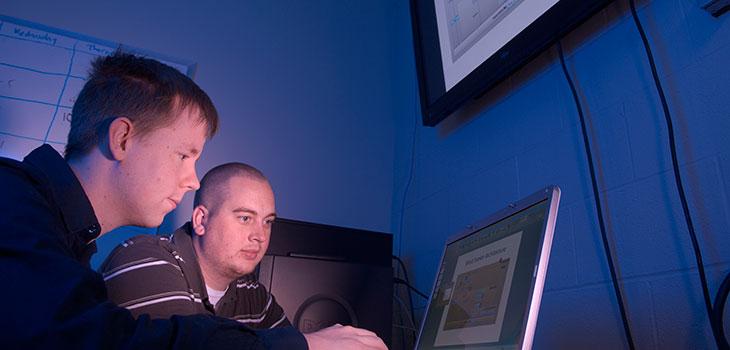
Biomedical Informatics

Gathering data is crucial to providing health care, advancing our understanding of basic biological processes, and identifying novel therapeutic targets and diagnostic biomarkers. The ability to effectively analyze, interpret, and manage that data is just as vital. With the technological advances that make data gathering faster than ever comes the need to efficiently process all this data. Opportunities abound to use patient data to personalize health care, automate the analysis of complex medical images, and mine biological databases to gather new insights into basic biological processes. Ongoing research projects in biomedical informatics by our faculty in this field are streamlining the effort to turn raw data into biomedical advances.
Genomic and Proteomic Analysis
机汇
Artificial Intelligence and Diabetes Management
巴勒斯坦权力机构
Medical Image Analysis
Imaging technologies are crucial for the diagnosis and treatment of an array of serious diseases. For example, cancer is often diagnosed and staged with a combination of magnetic resonance imaging (MRI) and computer-aided tomography (CAT). Biomedical engineers play a key role in the development of these devices and the interpretation of the data generated by these devices. The research group of Jundong Liu, associate professor of electrical engineering and computer science, develops advanced segmentation and registration techniques for longitudinal brain atrophy measurement in Alzheimer’s patients (in collaboration with the Sanders-Brown Center on Aging at the University of Kentucky), subcortical structure analysis (with the Vanderbilt University Institute of Imaging Sciences), and regional fat quantification in mice (with researchers from Ohio University’s Edison Biotechnology Institute).
Auditory Prostheses
Cochlear implants, which are electronic devices that are surgically implanted to the cochleas of patients with profound sensorineural hearing loss, have provided hearing to those patients through electrical stimulations. The goals of Li Xu, associate professor of hearing, speech, and language sciences, and his research group are to understand the mechanisms of electrical hearing and to identify ways to improve the function of the auditory prostheses. In particular, using signal processing techniques, Xu's team is trying to identify features of stimulation that are important for speech perception, tone perception, and music perception in patients with cochlear implants. Meanwhile, in collaboration with physicians in Beijing, Xu is studying the tone perception and production development in native tone-language-speaking children with cochlear implants.